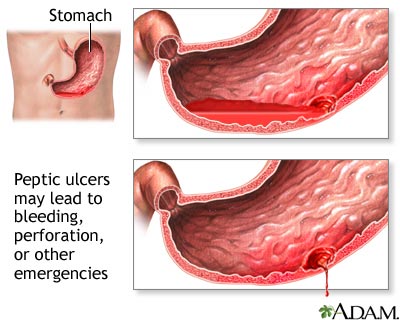Are you one of the millions of people who take a pain killer without a second glance? You may want to re-think about what you are taking.
Common pain relievers used by millions every day appear to increase the risk of a heart attack. Danish scientists studied health records of over one million citizens between 1997 and 2005. The average age of the participants was around 40. Those who used the pain reliever ibuprofen had a higher risk of stroke. Higher doses were also associated with an increased risk of heart attack.
This isn’t the first time non-steroidal anti-inflammatory drugs have been implicated in cardiovascular complications. When Vioxx was withdrawn from the market several years ago it was because of an increased risk of heart attack and stroke. The Dutch researchers found that the prescription NSAID diclofenac, sold under the brand names Cataflam and Voltaren, was about as risky as the banned Vioxx. One pain reliever seemed less problematic, however. Naproxen, sold under the brand name Aleve, was not linked to heart attacks or strokes. Patients, especially those with high blood pressure or other risk factors for heart disease, should discuss the new findings with their physicians. Choosing the most appropriate pain reliever could be a matter of life and death.
“Very few studies have been designed to answer the important question: Do NSAIDs also increase the cardiovascular risk among healthy people who use these drugs for minor complaints?” said lead author Dr. Emil L. Fosbol, a cardiologist at Gentofte University Hospital in Hellerup. “This study is the first to confirm that the cardiovascular risk is indeed increased when healthy individuals use some of the drugs.”
These findings are completely consistent with what we have found in patients with cardiovascular disease,” Dr. Michael E. Farkouh, a clinical cardiologist at Mount Sinai Cardiovascular Institute in New York City, said of the Danish study. “Drugs that elevate blood pressure and are associated with a thrombotic [artery-blocking] effect can be harmful in patients who are otherwise healthy.”
The percentage increases in the study were large, but the absolute overall risk in otherwise healthy people was small, Farkouh said. Nevertheless, “before you take any medication, you should consult with a physician, particularly these medications,” he said.
That warning applies especially to people who exercise regularly and are thus more likely to take an NSAID for muscle and joint pain, Farkouh said. Regular use of an NSAID increases the risk not only of cardiovascular problems but also of bleeding, a known side effect of the medications, he said.
NSAID can also cause stomach ulcers and should always be taken after lining the stomach with food or yoghurt. Those who suffer with Heli bacteri pylori should not take NSAID and discuss with your doctor which medication should be taken.
Bleeding ulcers are one of the most serious problems associated with NSAID (nonsteroidal anti-inflammatory) use. While there are many potential side effects that can occur from long term use of NSAIDs, bleeding ulcers can be life-threatening and must be taken seriously.
Bleeding typically occurs from the duodenum or stomach, but may also develop from the large intestine. While warning signs often occur, such as stomach discomfort or bloody/black stools, some patients — especially the elderly — may have no warning before they develop serious bleeding.
In addition to older age, other risk factors for this complication include multiple NSAID use (e.g., over-the-counter ibuprofen combined with prescription NSAIDs), blood thinners such as aspirin or Coumadin (blood thinner), corticosteroids, smoking excessive alcohol use, and prior history of stomach ulcers and gastrointestinal bleeding. In addition, some patients may have been exposed to the bacteria H. Pylori (Helicobacter pylori) at some time in their lives. This bacteria which is very common, is associated with a higher risk of bleeding ulcers.
C&G Medicare Ltd of Swansea United Kingdom constantly research things which will help you lead a better quality of life.
C&G Medicare now offer a paraben and drug free pain relief cream and gel. www.incostress.com have a wonderful range of ginseng creams. Muscle and joint for arthritis and ginseng sports gel – a powerful pain relieving gel for aches and pains.



2 thoughts on “IF you take pain relievers you need to read this.”